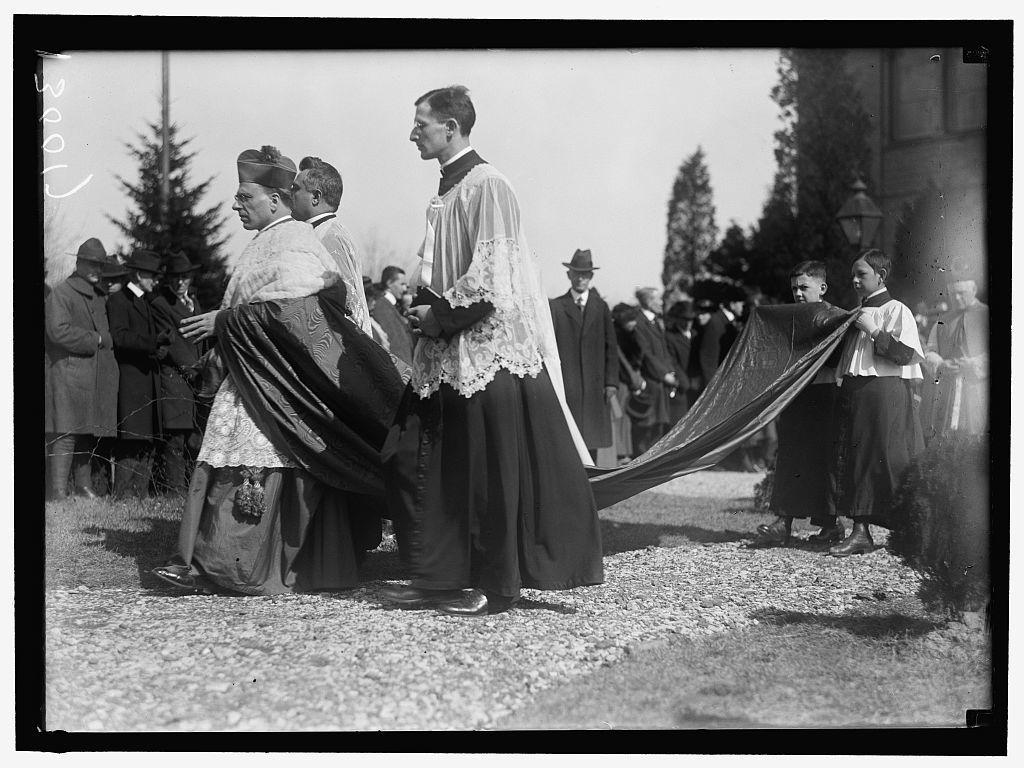

In the 4A division state championship football game last weekend, Cardinal Gibbons High School of Raleigh defeated Julius Chambers High School of Charlotte by the score of 14-2. Without disregarding the talents of the young men who played the game, let’s put aside the outcome for a moment, and consider the history makers for whom the two schools are named.
Cardinal James Gibbons served as the Roman Catholic bishop in North Carolina from 1868 to 1872 at the outset of a long episcopal career that stands out for his support for American-style democracy. The Raleigh diocesan school that bears his name dates its founding to 1909; the school changed its name from Cathedral Latin to Cardinal Gibbons in the early 1960s.
Julius L. Chambers, born in Mount Gilead in 1936, left an imprint on the state and nation in school desegregation and employment discrimination cases as a preeminent civil rights lawyer of the 20th Century. The Charlotte-Mecklenburg school system named a public high school for Chambers earlier this year after it dropped the previous name, Zebulon B. Vance, a Confederate military officer who was elected a post-war governor and U.S. senator.
At a time when the teaching of history has become again a flashpoint, it is fortuitous that a football championship would offer an opportunity to reflect on how biographies illuminate the complex story of America.
When church authorities sent Gibbons to Wilmington as bishop for North Carolina, he was 34 years old. In a state with a population then of 1 million or so, the Catholic Church had only 700 adherents with churches in Raleigh, New Bern, and Edenton. “Moreover, the church’s problem was aggravated by widespread illiteracy, for the school system all over the state had largely broken down during the (Civil) War,” wrote historian John Tracy Ellis, who published a two-volume account of Gibbons’ life.
Gibbons was subsequently assigned to Richmond and then Baltimore, where he spent the bulk of his career, well-known to occupants of the White House and of the Vatican. “Gibbons developed the double loyalty that should motivate American Catholics, love of God and of country,” wrote Ellis, “and he exhorted his audience to glory in the title of American citizen.”
The Britannica entry on Gibbons reports that “as a leader of the Catholic church hierarchy in the United States, Gibbons was outspoken in his praise for American democratic institutions, and he advocated Americanization—the rapid assimilation of Catholic immigrants into American culture and institutions.” While Gibbons, who died in 1921, believed in religious education, he instructed the Vatican on the U.S. separation of church and state and “refused to condemn public education.”
“On education, as on other social issues, Gibbons sought ways of harmonizing the tenets of the Catholic faith with the principles of American democracy,” says the Britannica essay.
In his life, Chambers sought to harmonize schools and workplaces with the American tenets of equal justice under law. He served for a decade as director-counsel of the NAACP Legal Defense Fund. He also co-founded a Charlotte-based law firm that focused on desegregation, employment, and voting rights.
Chambers and his colleagues won a landmark victory in 1971 when the U.S. Supreme Court ruled, in Swann v. Mecklenburg, that busing could be employed to implement court-ordered school desegregation. After that decision, his offices were fire-bombed. And yet, Charlotte leaders subsequently rallied to abide by the ruling, earning a civic reputation that contributed to the city’s emergence as a Southern powerhouse.
From 1993 to 2001, Chambers served as chancellor of North Carolina Central University in Durham. Afterwards, he became director of the Center for Civil Rights at the UNC Law School, from which he had graduated.
C-SPAN has a video archive of several Chambers speeches and panel presentations. In 1989, at the University of Mississippi, Chambers expressed concern at what he saw then as new barriers to school integration and fair employment.
“Recent decisions of the Supreme Court, therefore, threaten much of the progress Blacks and Whites had come to accept as governing principles of core constitutional law,” he said then. “These decisions threaten to return us to the divisiveness and turmoil of the past.”
It’s not difficult to imagine what Chambers, who died in 2013, would say in sounding an alarm about the divisiveness and turmoil of the present.




